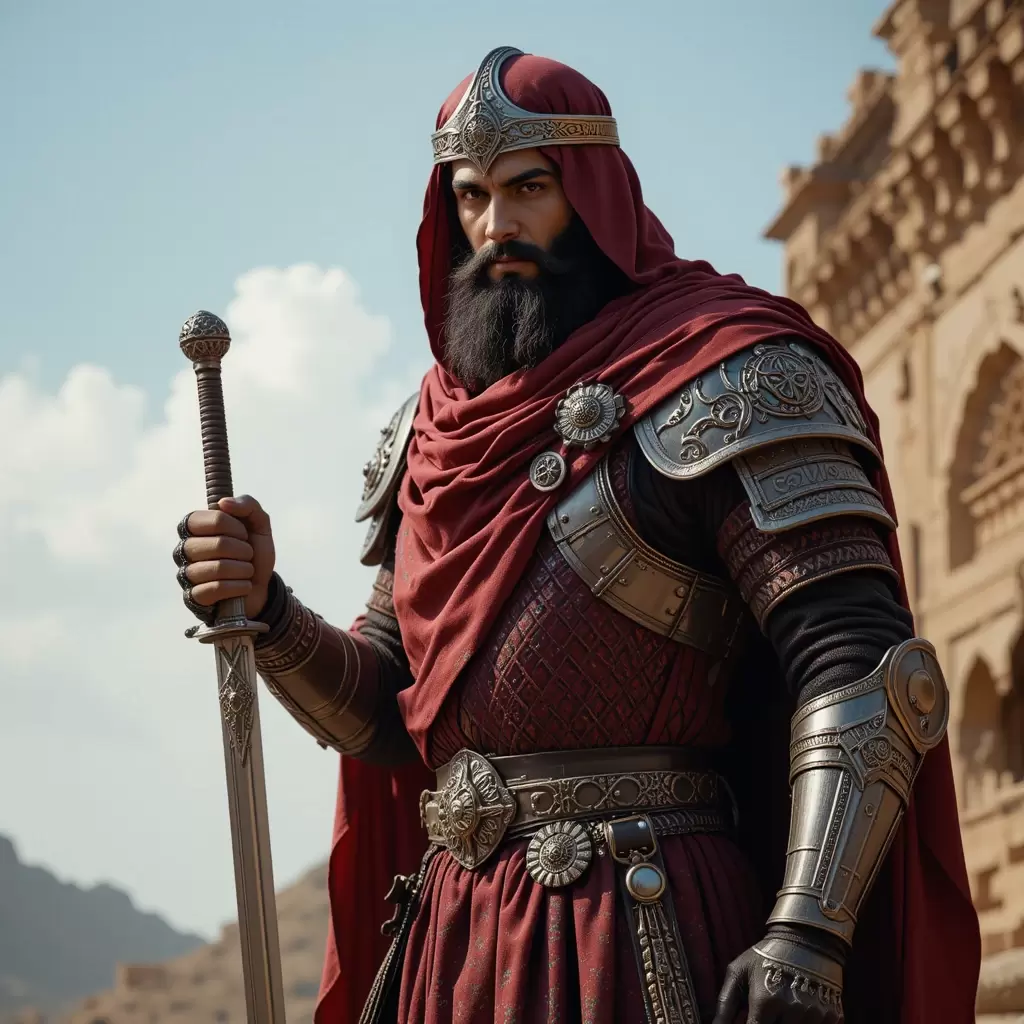
11 February, 2025
Omar Ibn Khattab, also known as Omar Ibn Al-Khattab or Omar Ibn El Khattab, is one of the most influential figures in Islamic history.
As the second caliph of Islam, he played a pivotal role in shaping the early Muslim state.
Known for his justice, wisdom, and administrative reforms, he left a lasting legacy that continues to inspire millions. This article explores his life, leadership, and contributions to the Islamic world.
Birth, Family, and Early Years
Omar Ibn Khattab was born in 584 CE in Mecca, into the respected Banu Adi clan of the Quraysh tribe. Before embracing Islam, he was known for his strength, intelligence, and leadership qualities. He initially opposed Islam but later became one of its strongest supporters.
His Conversion to Islam
His conversion is one of the most remarkable stories in Islamic history. Initially a fierce opponent of Prophet Muhammad (PBUH), Omar's perspective changed after reading verses from the Quran. His acceptance of Islam strengthened the Muslim community, and he became a key companion of the Prophet.
His Governance and Justice System
After the death of Abu Bakr in 634 CE, Omar Ibn Khattab became the second caliph. His rule was marked by justice, discipline, and efficient administration. He implemented judicial reforms, ensuring fair treatment for all, regardless of status or background.
His Military Expansions and Leadership
Under his leadership, the Islamic state expanded rapidly, conquering Persia, parts of the Byzantine Empire, and Egypt. His military strategies were instrumental in strengthening the Islamic empire, yet he emphasized ethical conduct in warfare.
Economic and Social Reforms
Omar Ibn Khattab introduced various economic policies, including:
-
Establishing a public treasury (Bait al-Mal) to manage state funds.
-
Implementing a social welfare system to support the poor and elderly.
-
Organizing a census to improve resource distribution.
Administrative Policies and Innovations
His administrative skills were revolutionary for the time. He introduced a structured governance system, including:
-
Appointing governors based on merit and accountability.
-
Standardizing currency and trade regulations.
-
Establishing a police force for maintaining law and order.
How He Was Martyred
In 644 CE, Omar Ibn Khattab was assassinated by Abu Lu’lu’a, a Persian slave, while leading the Fajr prayer in Medina. His death marked the end of an era of expansion and justice-driven governance.
His Impact on Islamic Civilization
Omar’s influence extended beyond his lifetime. His principles of justice, governance, and leadership continue to be studied and admired. Many modern legal and administrative systems draw inspiration from his policies.
Q: Who is Omar Ibn Al-Khattab? A: Omar Ibn Al-Khattab was the second caliph of Islam, known for his justice, leadership, and significant contributions to the expansion of the Islamic state.
Q: How did Omar Ibn Khattab die? A: He was assassinated in 644 CE by Abu Lu’lu’a while leading Fajr prayer in Medina.
Q: How old was Omar Ibn Khattab at Hijrah? A: He was around 40 years old when the Prophet Muhammad (PBUH) migrated to Medina.
Omar Ibn Khattab’s legacy remains unparalleled in Islamic history. His reforms, military strategies, and justice system transformed the Islamic empire into a powerful and well-organized state. His story continues to inspire leaders and scholars worldwide, making him one of the most revered figures in Islamic civilization.
Read Also:
Amr ibn al-As: The Strategist Who Conquered Egypt for Islam
Bilal bin Rabah: The First Muezzin Who Changed Islam Forever
Uthman ibn Affan: The Third Caliph and His Legacy

